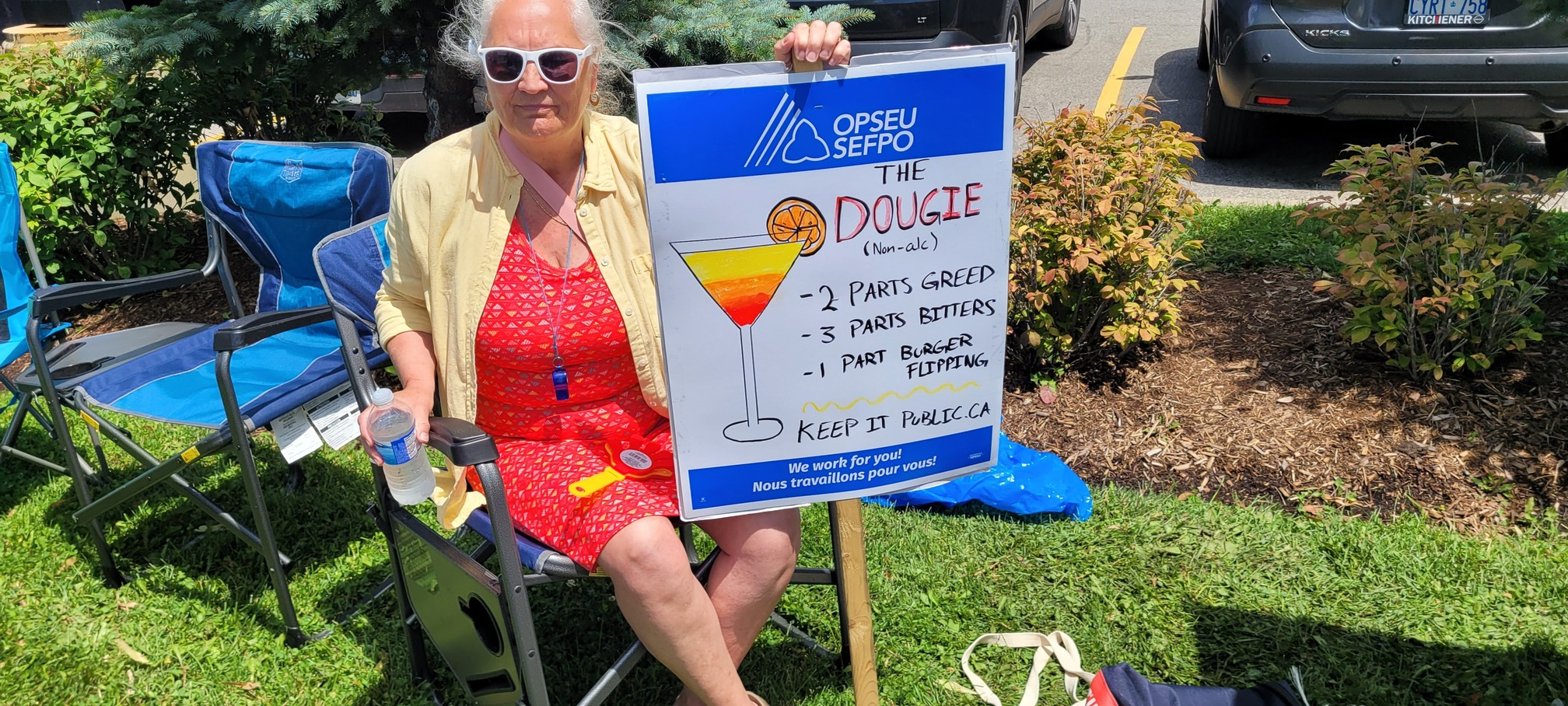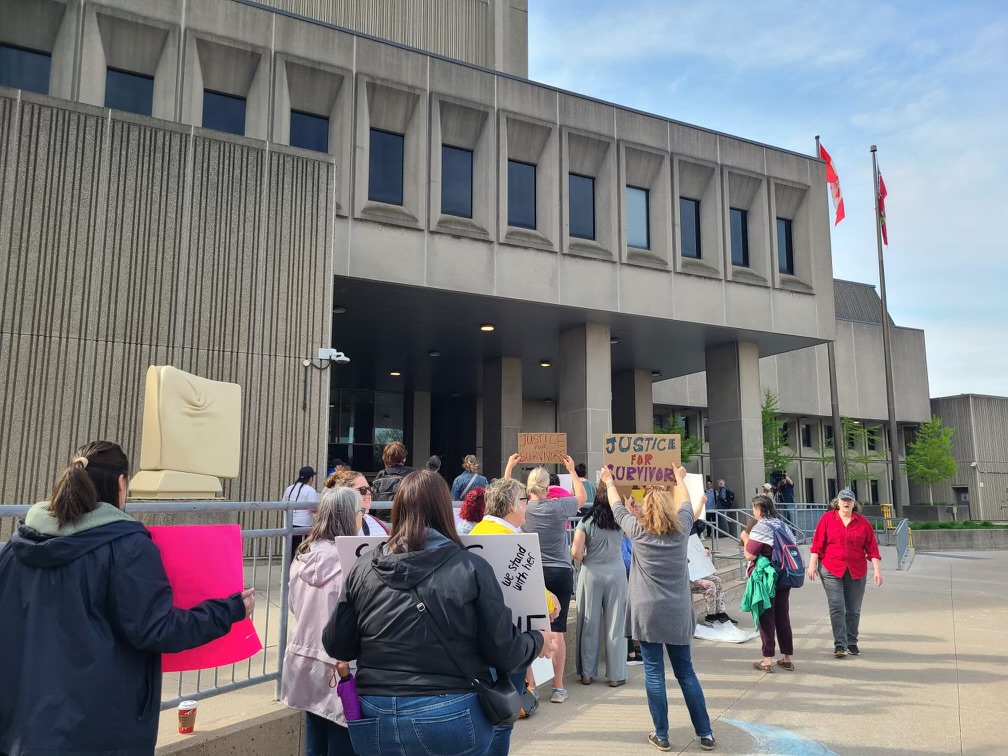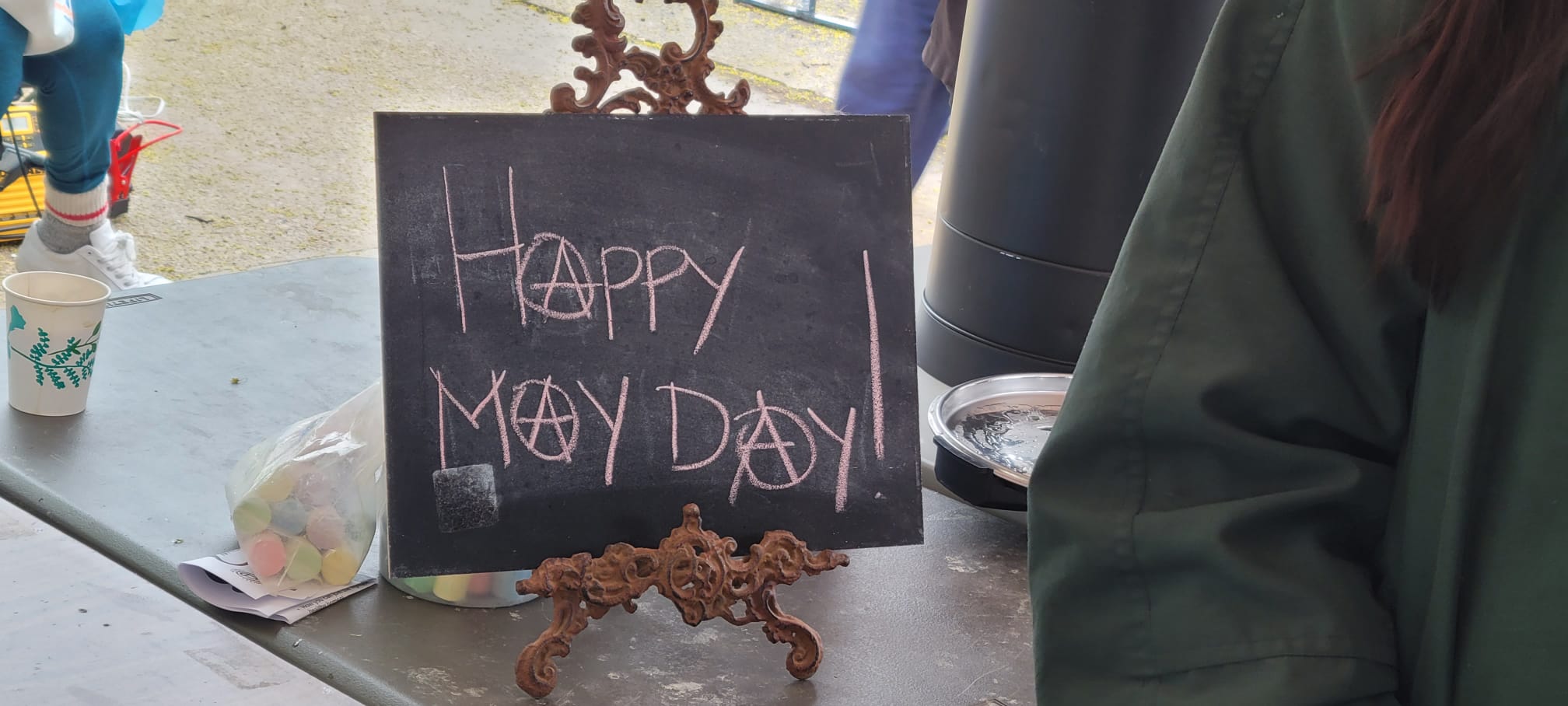“A fight for Ontario”: Why London LCBO workers went on strike
Sonia Persaud
Wed September 4, 2024

London’s provincial liquor control board workers went on strike for two weeks in July, joining an Ontario-wide labour movement that closed liquor stores across the province and ended with increased wages and benefits for workers, though privatization will move forward.
Liquor Control Board of Ontario workers across Ontario went on strike July 5 over concerns including wage increases, privatization of alcohol sales and the conversion of permanent part-time jobs to casual roles without access to employment benefits. Workers voted July 21 to ratify a new collective bargaining agreement between the LCBO and their union, ending the strike.
The new collective bargaining agreement, effective until 2027, includes wage increases, increased benefits and improved severance policies for workers.
LCBO workers will receive an eight per cent wage increase over three years, an additional 7.8 per cent increase for the LCBO’s lowest-paid workers and improved access to employment benefits for casual part-time employees. The agreement also guarantees no LCBO store closures, the conversion of 1000 casual retail workers’ roles to permanent part-time status and 60 new full-time jobs in logistics.
But the union failed to win a halt to the continued privatization of alcohol sales provincewide, with convenience and grocery stores now able to sell most alcohol products and drawing revenue away from the LCBO.
The Ontario Public Service Employees Union represents around 180,000 Ontario public sector workers, including around 10,000 LCBO workers. In London, Ont., approximately 600 LCBO workers are represented by OPSEU Local 163, according to Local 163 president Louise Beneteau.
July was the first time LCBO workers had ever gone on strike. During the strike, Jayne Grootjen, an OPSEU Local 163 member and a cashier at a LCBO store in London, told Antler River Media Co-operative public support for striking workers had been amazing and camaraderie was high.
“I think it’s been good for co-workers to come together and stand together and be strong together, just to show that we can achieve a lot when we do stand together,” Grootjen said.
The LCBO currently brings in $2.5 billion annually in revenue for Ontario’s public services. But the provincial government, led by Doug Ford’s Progressive Conservative party, announced plans in December 2023 to partially privatize alcohol sales in Ontario, allowing grocery and convenience stores to sell most alcohol products aside from hard liquor.
With more widespread alcohol sales at grocery and convenience stores potentially incentivizing LCBO store closures and job losses, privatization became a major concern for OPSEU during strike bargaining, although government sources including Ford claimed a reversal of the decision was never on the table.
“We don’t want the LCBO to be privatized. We want the money to go back to our health care and our education,” said Beneteau, who is also a customer service representative at LCBO. “The public doesn’t want this either, but Doug Ford seems to have his own agenda.”
In May, the province announced alcohol sales would be allowed “earlier than planned” with a phased rollout beginning Aug. 1, later revised to July 18. The early rollout involved the province cancelling a 2015 deal the former Liberal government signed with the Beer Store a year early, at a cost of $225 million to taxpayers.
Experts have said this move may lead to increased alcohol consumption, which carries downstream effects of heightened healthcare, criminal justice and productivity costs.
Not all workers expressed concern over alcohol sales privatization. Mini Satheesh, a casual customer service representative at an LCBO store in London, told Antler River Media Co-op she’s not concerned about privatization. Her first priority is job security.
“I don’t want [the LCBO] to lay us off because we are casual, we are not permanent part-time or permanent full-timers,” she said. “So for me, job security is more important than this stuff going on.”
But Grootjen believes LCBO workers were on strike for more than just themselves, drawing on the costs of alcohol privatization on broader public sector services.
“We have to stand strong. This isn’t just a fight for us. It is a fight for Ontario.”
— with files from Emmanuel Akanbi







